Fantastic Beasts – the newest phenomenon from the wizarding world of Harry Potter (Image from Geek Tyrant)
Have you watched the latest blockbuster movie Fantastic Beasts and Where To Find Them?
J.K. Rowling’s latest installment – a prequel to the much beloved Harry Potter series – swept cinemas around the world with much critical acclaim. Based on a 2001 book written under her pen name Newt Scamander, it is the newest piece of the Harry Potter universe.
If you recall, almost everybody in the civilised world wept sweet tears when the Harry Potter movie franchise purportedly ended with the screening of “Harry Potter and the Deathly Hallows Part 2” back in 2011.
Fortunately, the success of the franchise spurred Rowling to continue pushing her mighty pen. Her publishers confirmed that she would continue to write three new collections of stories in the series.
The World’s Most Bankable Fantasy Brand
Considered the world’s most bankable fantasy brand – with an estimated brand value of US$15 billion – Harry Potter forever changed the image of children’s fantasy books with its massive global impact.
With its unprecedented wave of success, the enchanting world of Harry Potter left many wondering if such a feat could be repeated ever again.
With that question in mind, I picked up marketing author Susan Gunelius’ book Harry Potter: The Story of a Global Business Phenomenon hoping to find answers to how a geeky boy wizard could change the business world.
Laced with prodigious facts on the history and evolution of the brand, the book chronicled how the brand evolved from a desperate effort by poverty-stricken single mother J.K. Rowling to the most well loved literary and cinematic phenomenon.
In the process, Rowling herself has transformed into one of the most well respected, popular and wealthy authors in publishing history.
(Yes, she was probably the first author to become a billionaire.)
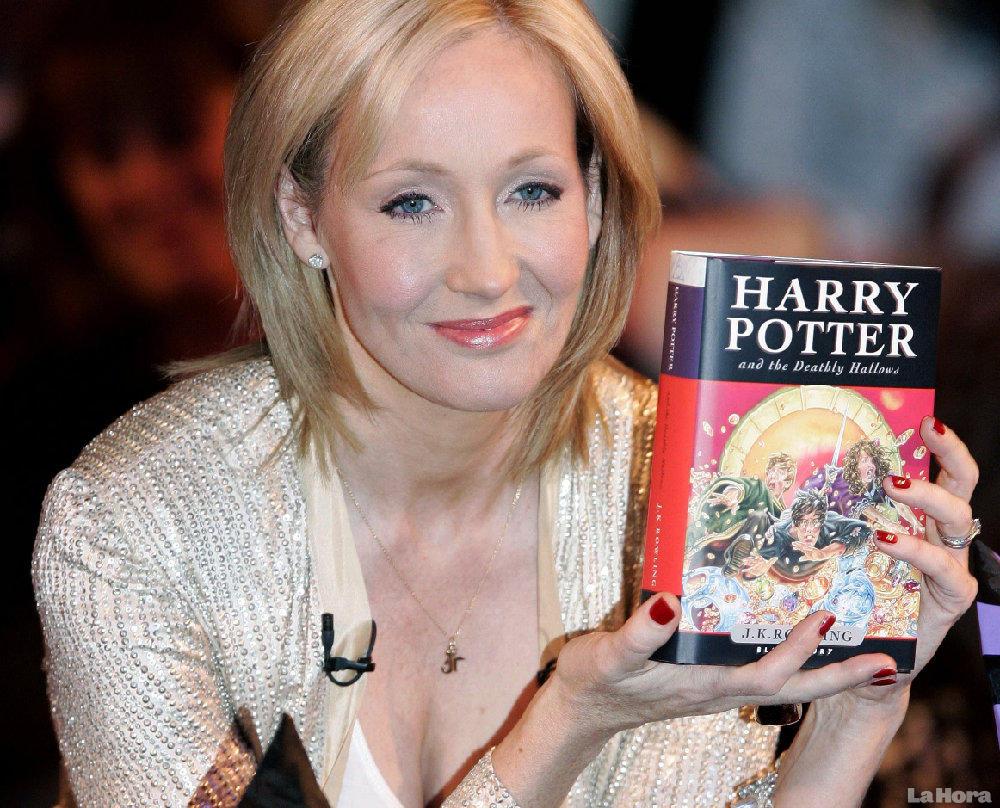
JK Rowling with “Harry Potter and the Deathly Hallows” (source of image)
So what were the secrets to the success of Hogwarth’s most famous student? In Gunelius’ own “Muggle-speak”, they are:
Begin with a Good Product
The first and most important success principle lies in its product. Often, the longevity and breadth of any product brand depends on how well it can meet its customer wants, needs and desires.
Content is key to Harry Potter’s success. The series’ ingredients of a fallible “antihero”, coming of age, good versus evil, likable characters, and elements of magic and suspense resulted in a winning formula.
Emotional Involvement
Engaging the three Ss of customer loyalty (stability, sustainability and security), the Harry Potter series embraced a linear, chronological narrative structure. Each book picked up from where the previous one left off.
This was a great example of Transmedia Storytelling in action.
With a central story arc involving the same set of well-loved characters – Harry, Hermione and Ron – Rowling’s books and movies engaged readers and viewers in the fates of these young wizards as they tackled adolescent issues while battling an ominous threat.
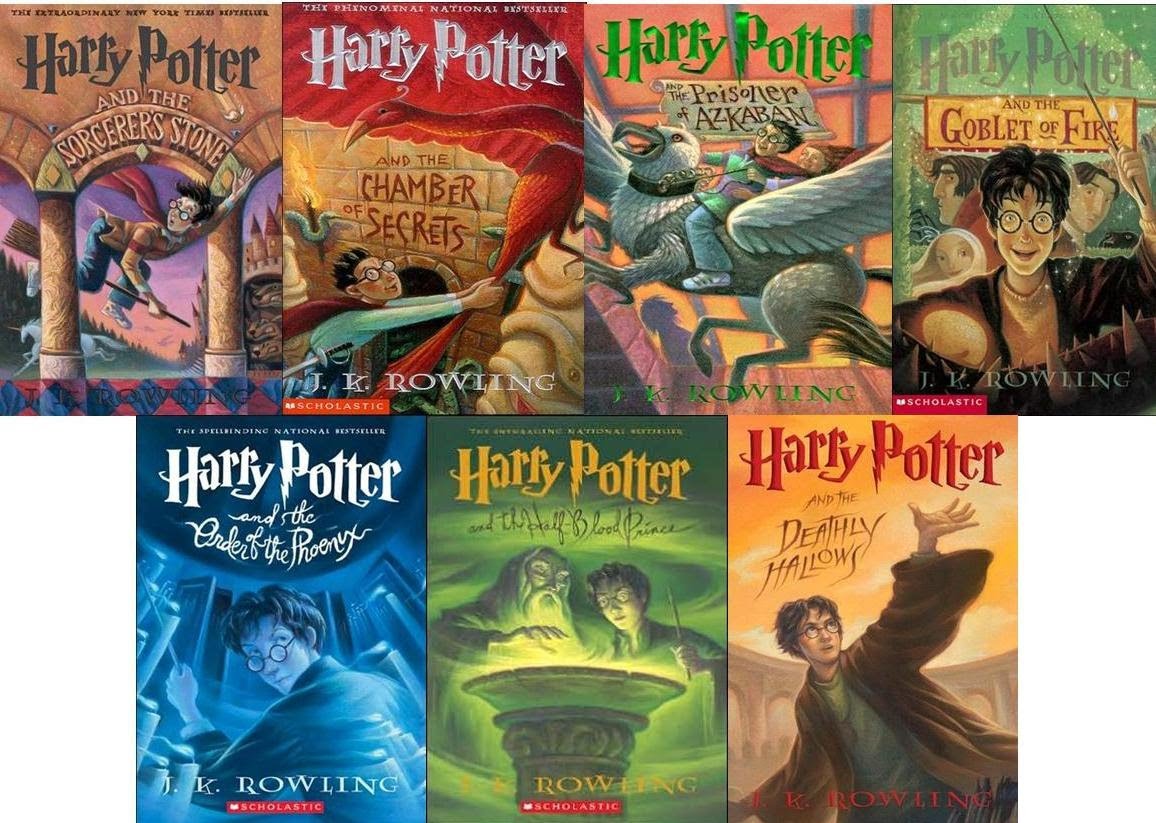
The 7 Books in the Harry Potter series (Courtesy of Super Reviewer 69)
Word-of-Mouth and Online Buzz
Harry Potter’s huge legions of fans certainly contributed to the franchise’s success.
According to Gunelius, the advent of social media networks and online buzz triggered a huge Word-Of-Mouth (WOM) growth of the Harry Potter franchise. This allowed it to overtake fantasy predecessors like C.S Lewis’ The Chronicles of Narnia and J.R.R. Tolkien’s The Lord of the Rings series.
The five factors of successful WOM marketing in the Harry Potter saga were as follows:
- Start with a good product with a story to tell
- Don’t give it all away
- Add a viral component
- Allow a sense of community
- Join the conversation
Here’s an interesting plot twist.
Initially, J.K. Rowling herself, Warner Bros and Scholastic publishing actually tried to take legal action against fan sites which appropriated images and content from the franchise for their own purposes. However, they wisely decided to change their strategy early.
Instead of suing these unauthorised Harry Potter lovers, they embraced their most ardent fans. They include the creators of fansites like Mugglenet and The Leaky Cauldron. Rowling and her agents even encouraged them to create their own fan art, fan fiction, fan movies and other content.
Tease and Perpetual Marketing
This was probably the greatest lesson in the Harry Potter chronicles.
By cleverly building anticipation and creating a veil of secrecy around each successive product, the creators of Harry Potter helped to drive emotional connection and continuity from each book and each movie to the next.
The crowning achievement of this was probably the final two movies in the series. In Harry Potter and the Deathly Hallows Parts 1 and 2, fans had to wait impatiently for the story in the last book to unfurl over two movies – each a year apart.
This resulted in greater longevity and impact.
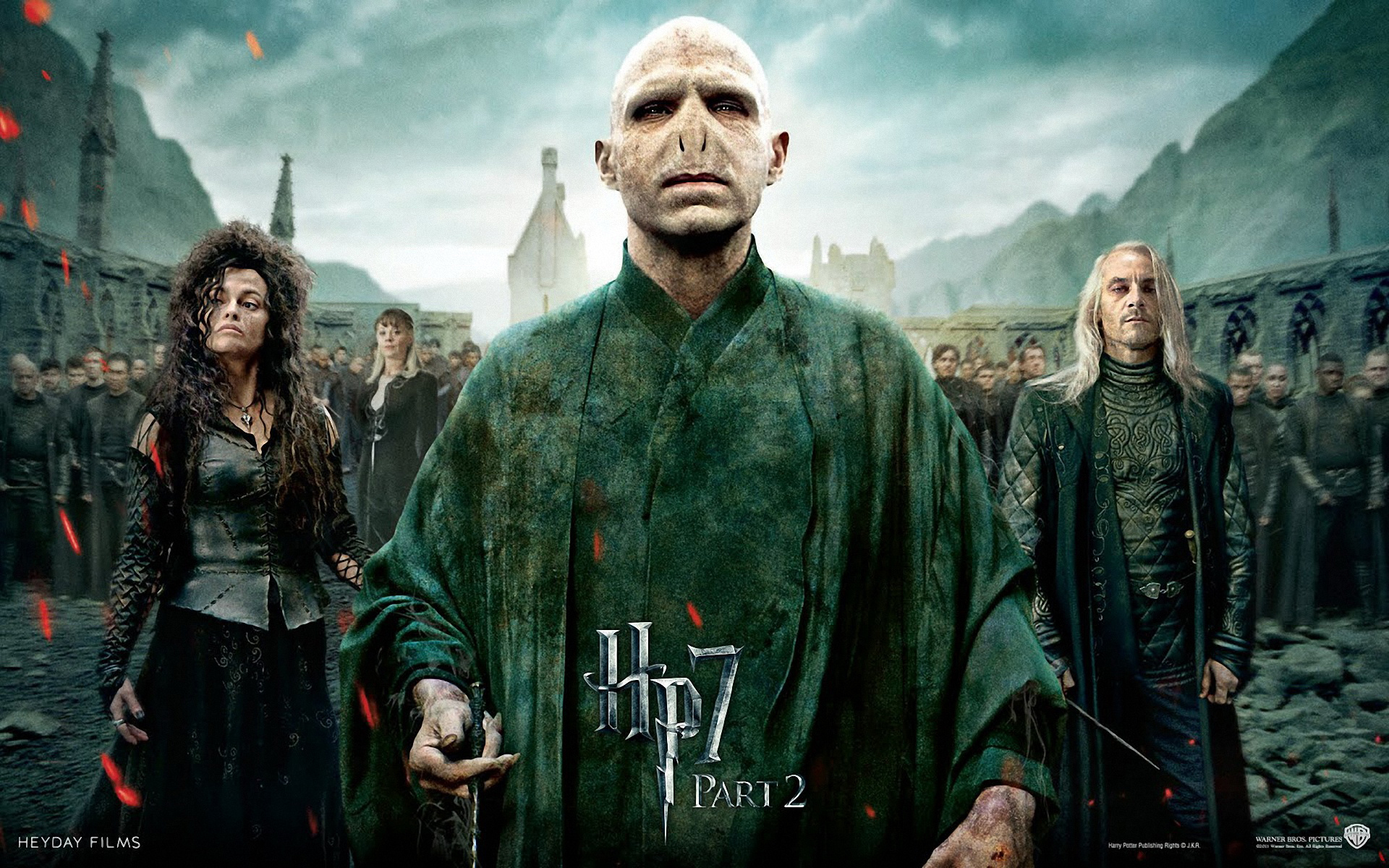
Harry Potter and the Deathly Hallows Part 2 brought the world’s leading movie franchise to an end (source of image)
Brand Consistency and Restraint
Unlike many Disney movies where new shows and characters may sometimes be merchandised ad nauseum, Rowling herself retained strict control over the Harry Potter brand as its guardian.
With a strong hand in every dimension of the boy wizard’s commercial direction – from publishing, film production, merchandising to the development of the Wizarding World of Harry Potter theme park in Universal Studios Orlando – Rowling ensured that the brand was not over extended by exercising strategic restraint.

The Wizarding World of Harry Potter in Universal Studios’ Islands of Adventure (Courtesy of Universal Studios Hollywood)
Beyond the strategies above, Gunelius also detailed how Harry Potter grew in stature over the years. The franchise expanded and grew progressively – from print to celluloid, plastic, digital media and a real life theme park.
In each case, however, brand consistency was strictly adhered to.
Is Harry Potter’s Success Manufactured or Accidental?
Beyond Harry Potter, Gunelius’ book also cited numerous case studies from consumer brands like Apple, Disney, and PlayBoy. She further devoted an entire chapter on the destinies of other literary greats like Charles Dickens, Dan Brown and Stephen King, and how these same principles applied to their success.
While the book provided hints and tips of how Harry Potter reached its worldwide mega status, it also admitted that J.K. Rowling’s journey was rather serendipitous and accidental.
Could other authors replicate Rowling’s success by adopting these strategies?
Well, it is likely to still be a shot-in-the-dark, considering that many other copycat authors and filmmakers have failed to achieve anywhere near this level of success.
Reading the slim volume made Harry Potter’s business success seem rather easy and commonsensical. However, the truth was probably far more dependent on uncontrollable factors than what it seemed. After all, with hindsight, one does have 20-20 vision, magic spells notwithstanding.
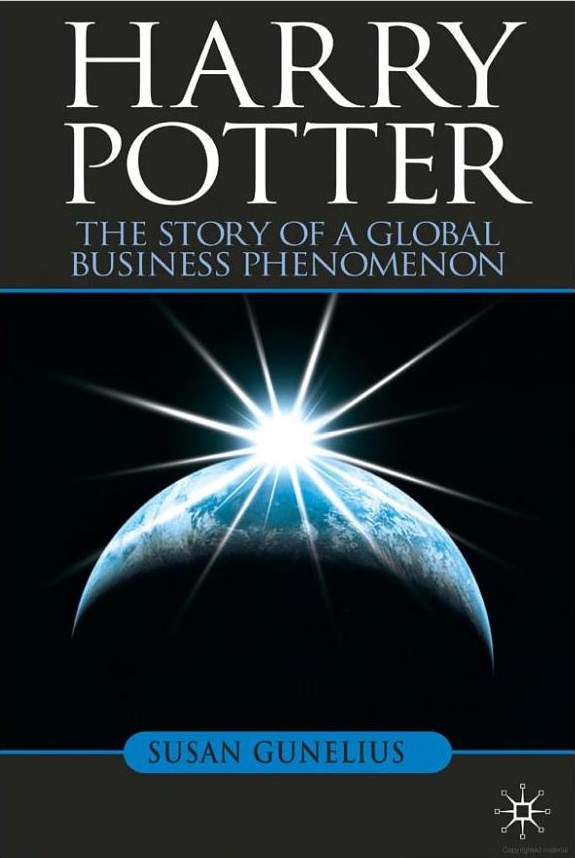
[Article first published as Book Review: Harry Potter – A Global Business Phenomenon by Susan Gunelius on Blogcritics.]

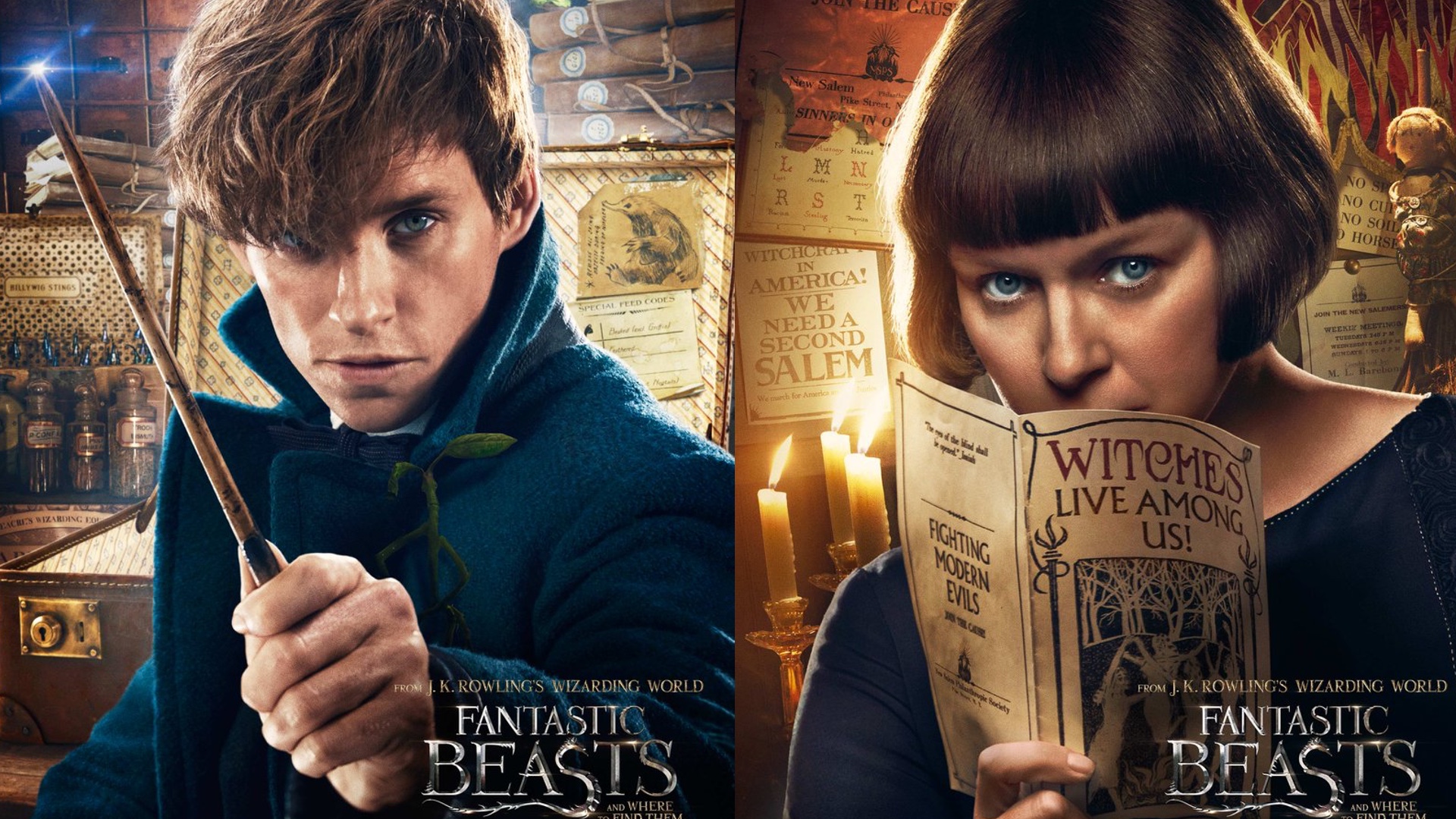
When a book meant for the children also pulled in matured audience in masses, its success is sealed. The children don’t have to persuade the adults to buy books, movie tickets and merchandise, the adults willingly open up their wallets – sometime without prompting. I’m one of them. I agreed that the books are pretty interesting – especially the first 2 books. Most books won’t tell it all but they could be so predictable that audience knows what will happen next. Regrettably this happens to well known writers too. Most writers who have created a hero will most definitely want to create a viral impact, yet most fell flat or apart after a few books. Frodo definitely has his own fan base but I believe they are of a different league from Harry’s supporters. Most kids connect with Harry more easily. Not only is Harry a bullied underdog turned hero, Harry leads the real-life kids and adults to live in Hogwart with his wizard friends and and foes. We literally grow up/old with Harry in the same environment years after years. JK Rowling made Harry’s home ours. Using Malcolm Gladwell’s word, the Harry Potter’s stories and characters have a high level of “stickiness”. With such “stickiness”, we joined the Harry Potters’ community and the conversation. Viola, money rows in for JK Rowlings and gang.